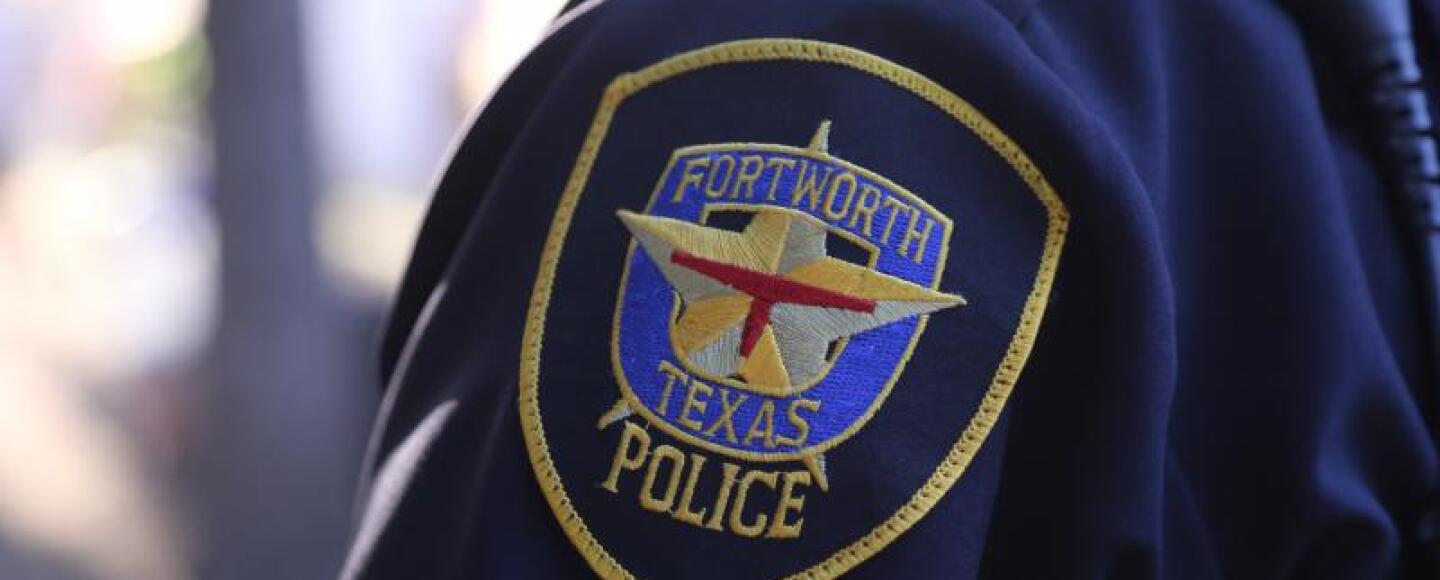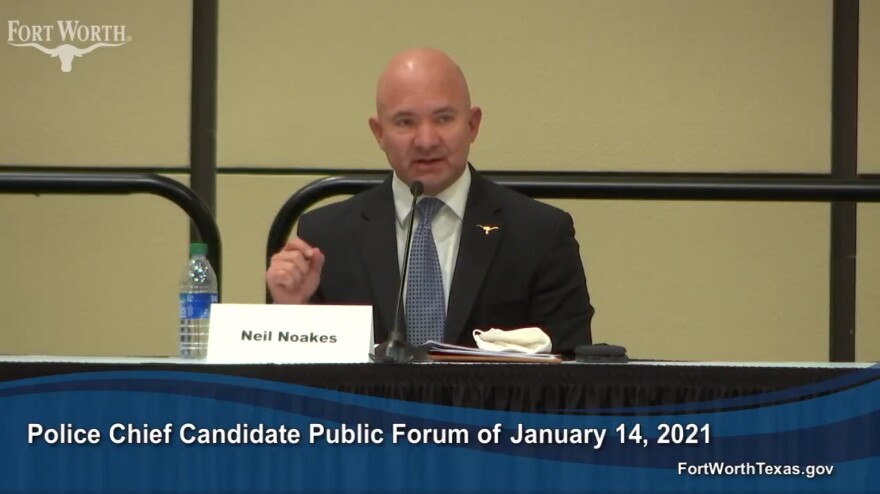After a year of high-profile police killings and widespread racial justice protests, the six finalists for Fort Worth police chief answered questions about how they would hold their officers accountable for misconduct.
Chief Ed Kraus, who has led the department since 2019, announced his retirement in July. Much of Kraus' tenure has been defined by the killing of Atatiana Jefferson, a 28-year-old Black woman, and his department’s response to protests following the killing of George Floyd.
The city is considering six candidates to replace Kraus:
- Julie A. Swearingin, an assistant chief in the Fort Worth Police Department
- Neil Noakes, a deputy chief in the Fort Worth Police Department
- Wendy Baimbridge, an assistant chief in the Houston Police Department
- Troy Gay, an assistant chief in the Austin Police Department
- Derick D. Miller, Carrollton’s chief of police
- Christopher C. Jones, an assistant sheriff in the Las Vegas Municipal Police Department

The public met those candidates on Thursday night, at a forum at the Fort Worth Convention Center. Residents submitted over 100 questions, which were boiled down into six topics.
One area of particular interest: How each candidate would hold officers accountable for being disrespectful, or for using excessive force.
Wendy Baimbridge — an assistant chief in the Houston Police Department — said departments can't let misbehaving officers off the hook.
"We unfortunately have had to let go of a lot of officers. I've been under some chiefs that didn't. And unfortunately, that will fester and grow worse,” she said.
Several candidates said the most important thing is to have clear policies, so everyone understands what the expectations are, and to discipline officers accordingly.
Christopher C. Jones, the assistant sheriff on Las Vegas’ police force, said discipline exists to change behavior.
"You make sure that when you have a problematic officer, they're dealt with," he said.
In a report commissioned by the city, a panel of outside experts found that the Fort Worth Police Department’s policies and training don’t always translate to the field.
“That’s a problem,” said Deputy Chief Neil Noakes, one of the internal candidates. “That's something Chief Kraus has addressed, and that’s something we will continue to address.”
Noakes said that rudeness is linked to excessive force, because it can make situations more tense. He said the department has dealt with this in the past by being proactive — they identified a rude officer, sent him back to training, and partnered him with a more experienced officer, with no further incidents.
Another internal candidate, Assistant Chief Julie Swearingin, emphasized the importance of transparency when it comes to disciplinary action. The public needs to understand the reasoning behind the department’s decisions, she said.
“Sometimes when the discipline that we hand out doesn’t match your expectations, that will give you a better understanding of what guidelines we’re following,” she said.
Swearingin said she put the department’s internal affairs process online, so everyone can understand how it works.
Candidates also had to explain how they'd work with Fort Worth's newly created Office of the Police Oversight Monitor, which recommends changes from outside the department.
Austin Police Assistant Chief Troy Gay said his department has benefited from working with his city's police monitor.
"Sometimes we get in this police lens, and we don't recognize all the traps or the areas that we need to really change," he said.
Even before candidates were asked about the police monitor, Carrollton Police Chief Derick Miller said he likes the idea of having outside accountability.
“I’m not afraid to say that having a monitor, an external monitor that reports to the management of the city to ensure the police department is doing what they say they’re doing, is a good thing. I think the idea needs to be extended,” he said.
Assistant City Manager Jay Chapa told KERA in December that besides the forum, the job interview process includes rounds of discussion with city, community and business leaders, as well as the police monitor. He said hopes to make a hire by the end of this month.
Got a tip? Email Miranda Suarez at msuarez@kera.org. You can follow Miranda on Twitter @MirandaRSuarez.
KERA News is made possible through the generosity of our members. If you find this reporting valuable, consider making a tax-deductible gift today. Thank you.





